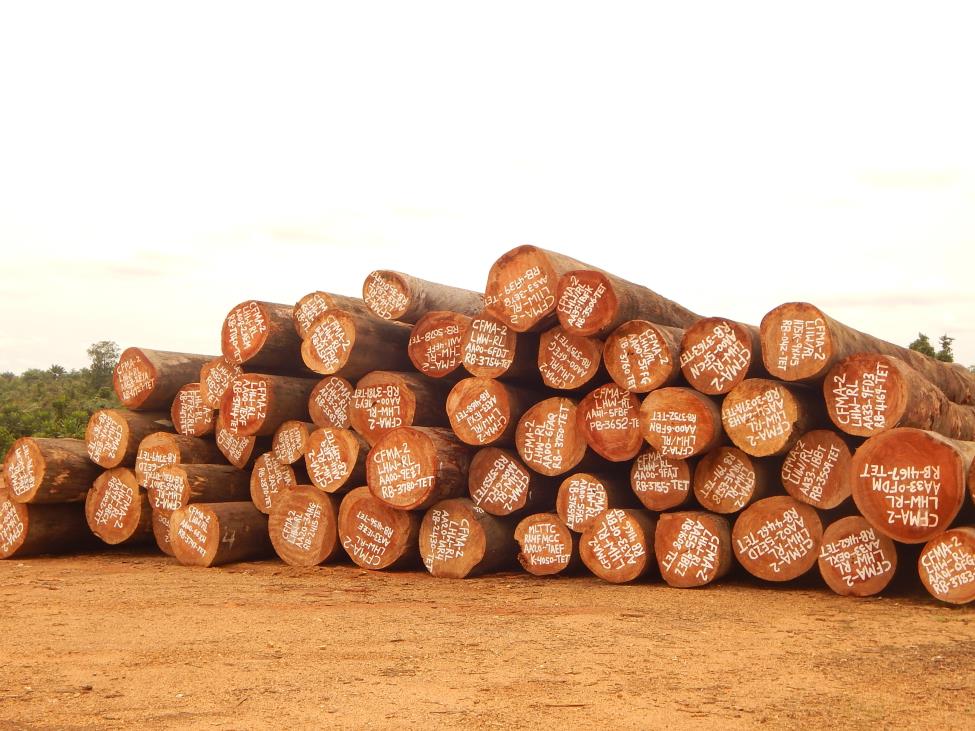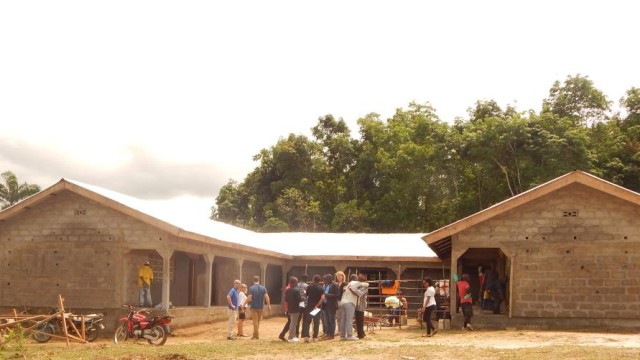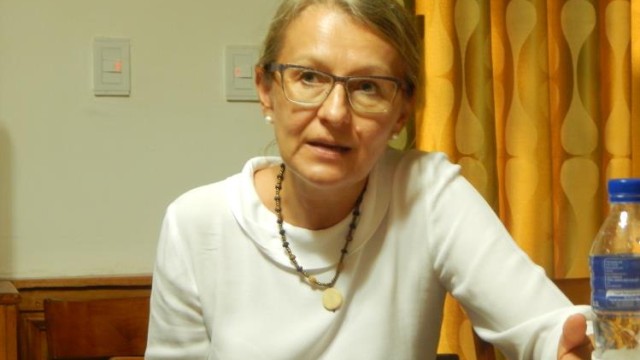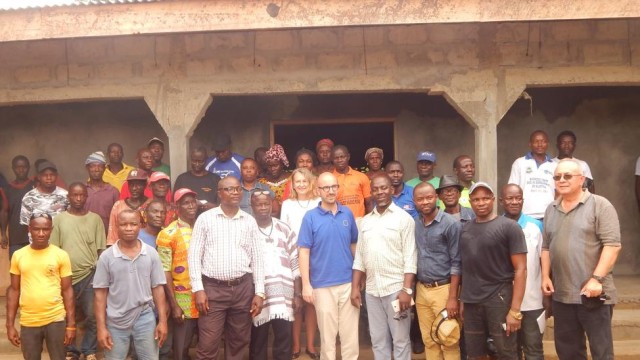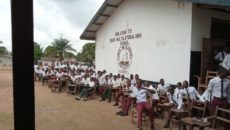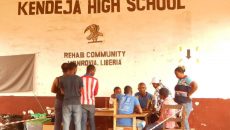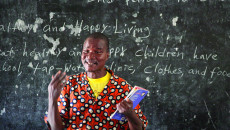YARPAH TOWN, River Cess – A US$46,000 multi-purpose vocation training center will soon be constructed in Yarpah Town to provide basic vocational education programs for the youth of surrounding communities.
According to engineers, US$43,000 of the total cost of the project was made available from fees paid by loggers in the community. The remaining portion of the money will be provided by the county government.
The Forest Reform Act of 2006 provides that 30 percent of the land rental fees collected by the government should be allocated to communities affected by the logging activities.
Comprising of representatives of the communities, government and civil society organizations, the Benefit Sharing Trust Board manages and supervises the land rental funds.
In order to ensure a sustainable management of its forests, the Liberian government in 2011 signed a Voluntary Partnership Agreement with the European Union with the aim of reducing illegal logging by strengthening sustainable forest management, improving forest governance, and promoting trade of legally produced timber.
Speaking last Tuesday during an EU delegation visit to River Cess, Juiet Sando, a member of one of the communities, said she was happy to see her community directly benefit from resources of their forest for the very first time.
Sando said, upon being informed about the money, people of all affected communities in River Cess met to discuss what project had to be undertaken.
Following a number of suggestions, she said the communities voted to use the entire amount for the construction of the vocation training center in Yarpah Town.
“We, the women, especially, chose the vocation center project because most of our children are riding commercial motorcycles and have no other skills for sustainability,†she said.
She said the communities would benefit more from the money if their children learned skills to work and make money on their own in a sustained way.
Matthew Walley, the chairman of the Community Forestry Development Project, said Yarpah Town was selected to host the project because of its central location.
Walley said every decision on using the money was made solely by members of the community.
“We are targeting to begin active operations with 75 youths in the first phase of the training,†he said. Discussions are now ongoing with the Ministry of Education to coordinate the program and provide technical support.
He said several vocational skills, including carpentry, auto mechanics, and masonry, would be taught at the facility. Most of the trainers are expected to be recruited from the county.
Walley said the communities have also agreed to use the funds from the logging concessions every five years, in addition to commitments from the county development funds, to sustain the vocation program.
The national chair of the Benefits Sharing Board, Mathias Yeaney said in 2015, the board received US$1 million from a US$1.2 million arrears of 30 percent land rental owed by the government to affected logging communities. Yeaney said it was from that amount the 23 communities were given a US$43,000 share for their project.
He said the project is just one of 23 projects in 11 counties currently taking place in Liberia from the US$1 million.
“We still have some money that is being transferred from government to the Benefit Sharing Board, and still hope some more money to be transferred,†he said.
“So, it’s a whole broad stakeholders’ process that the VPA has contributed to. It’s now a requirement under our laws that communities receive 30 percent of land rental fees paid by companies to the government, and that 30 percent should come to the communities through the Benefit Sharing Board.â€
EU Ambassador to Liberia, Tina Intelmann, who traveled to River Cess to visit the logging communities and to assess the progress of the agreement between the EU and the government, said the EU is taking stock of how its agreement with the government of Liberia is working.
She said the agreement allowed for a “sustainable and responsible management of forests.â€
In 2003 the EU adopted the action plan known as the Forest Law Enforcement, Governance and Trade or FLEGT. Under this program, the VPAs were created to prevent illegal timber from entering the EU.
At the heart of the FLEGT VPA is the Timber Legality Assurance System, which verifies that wood products conform to national laws. Liberia’s Forestry Development Authority has been working to ensure that the country honors its commitment to the VPA.
In 2013 the European Union and the United Kingdom Department for International Development also agreed to provide support to the country to meet its VPA commitments by establishing the VPA Support Unit to coordinate the capacity building for Liberian stakeholders including government Ministries, Agencies, and Commissions; the Civil Society and the Private Sector.
During her visit, the EU Ambassador also had discussions with stakeholders, including the Forestry Development Authority, which has been working to ensure that the country honors its commitment to the VPA.
“We are doing capacity building of the FDA, because right now the logging tracking system is still being done by an outside company, but FDA is taking over that responsibility shortly,†Intelmann said.
She said through the partnership, FDA’s office outside Monrovia has also been refurbished with a regional office being built in Buchanan for easy access and interactions with companies and stakeholders.
What remains a challenge, she said is the full assumption of responsibility by the FDA as the VPA capacity building will shortly come to an end.
For his part, FDA’s Acting Managing Director Darlington Tuagben praised the EU’s support to the agency.
Tuagben said with the VPA in place, the forestry sector in Liberia is experiencing a transformation that will benefit all stakeholders, including local communities.
“The VPA has now encouraged us to establish a platform that ensures that all voices are heard, even at the community level. So, we have this national multi-stakeholders monitoring committee that meets monthly to discuss forestry issues in Liberia, which was not happening before,†he said.
Liberia still contains about half of the entire rainforest remaining in West Africa. About 45 percent of the country, 4.3 million hectares, is covered by forest.
Featured photo by Gbatemah Senah
